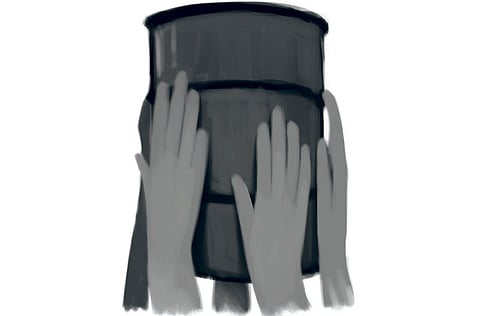Opec needs to present a united front
Organisation has to sort out internal rivalries and enhance investment to tackle western challenges to its influence

Last week, the Organisation of Petroleum Exporting Countries (Opec) celebrated the 50th anniversary of its creation. In September 1960, representatives from five oil producers — Iran, Iraq, Saudi Arabia, Kuwait and Venezuela — met in Baghdad and agreed to establish the organisation, which later became a key world player.
Consumers, the industrialised nations in particular, regarded the establishment of Opec as a hostile action by producers and have since been trying to curtail its influence in the oil market. In the West, oil supplies, prices and transport are not seen as mere economic matters but political and strategic questions too.
Opec, which controls more than two-thirds of the world's oil reserves and produces some 40 per cent of its needs (29 million barrels a day), wields more influence in international politics than the West can tolerate.
In 1974, the US, along with other industrialised nations, established the International Energy Agency (IAE) to counterbalance Opec's influence in the international market and loosen its grip on petroleum prices. In parallel, since the 1973 Arab oil embargo, the US has been trying to reduce its reliance on Opec's oil.
For the US, oil is not scarce, but most of it is controlled by Opec. Hence, the health of the US economy has always been dependent on Opec's policy concerning price and supplies. With a divide-and-rule approach, however, the US has so far been able to cope with this situation.
In recent years, particularly since the September 11 attacks, challenges increased as the US vulnerability in the energy sector has become abundantly clear. Security and oil became so intertwined in the minds of many Americans that any attempt to separate them was rendered impossible.
On the one hand, the US held some oil-rich countries responsible for tolerating the activities of anti-American militancy. Some, such as Iraq and Iran, were accused of using their petrodollar wealth to develop weapons of mass destruction (WMD).
On the other hand, it was extremely difficult to decide whether the US reaction to the September 11 attacks was driven by security concerns or by the drive to establish control over the world's largest oil reserves.
For example, the invasion of Afghanistan has resulted in the destruction of a key shelter for Al Qaida, but has also made it easier for the US to reach the oil resources of Central Asia and the Caspian Sea.
Two years before the invasion of Afghanistan, it was reported, US oil companies bought rights to almost 75 per cent of the region's oil and gas output. Similarly, the occupation of Iraq put the globe's second largest oil reserves under US control. In a later stage, the US turned to Africa in a relentless effort to solve the energy question.
Since 9/11, Africa has become the source of 15 per cent of US oil imports. It is estimated that by 2025, Africa's share in the US oil market will rise to 25 per cent. In addition, the US is tempted by African oil for its high quality and better transport distance from the Atlantic coast compared to the Middle East.
Africa, US officials believe, could also contribute to breaking Opec's hold on the oil market. This objective cannot be realised any time soon, however. Opec remains key to a stable oil market.
Historically, peaks in oil prices have been the results of political crises in the Middle East: the 1973 Arab-Israeli War, the 1979 Islamic Revolution in Iran, the Iran-Iraq War, the Iraqi invasion of Kuwait, and the 2003 US invasion of Iraq. In most of these cases, Opec — or key members of the organisation — was able to increase production and hence moderate the prices.
But Opec might not be doing enough to retain its influence. Over the past few decades, Opec members have done little to increase their production capacity, withering away their ability to control the oil market. Instead of using their oil exports, which nearly doubled in value between 2003 and 2008, to develop their oil industry, some Opec members have used most of their revenue to repay government debts and buy western weapons.
As a result of inadequate investment in the oil sector, Russia has replaced Saudi Arabia as the biggest oil producer. Differences among Opec members have also weakened the organisation, taking away part of its power.
In the coming years, Opec will have to address these issues and try to reassert its influence in the oil market. Success will depend on how the organisation tackles these challenges at a time when the West remains intent on weakening it.
Dr Marwan Al Kabalan is Director, the Damascus Centre for Political and Economic Studies, Damascus University, Syria.
Sign up for the Daily Briefing
Get the latest news and updates straight to your inbox


